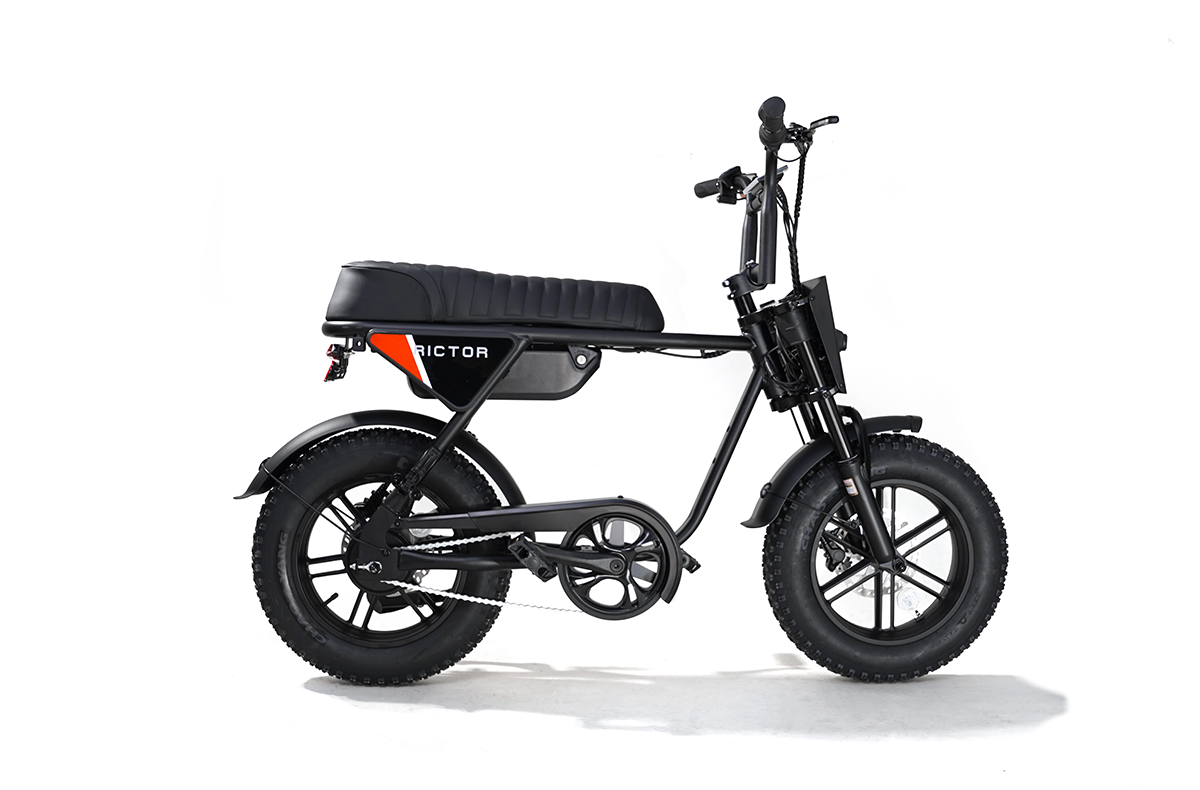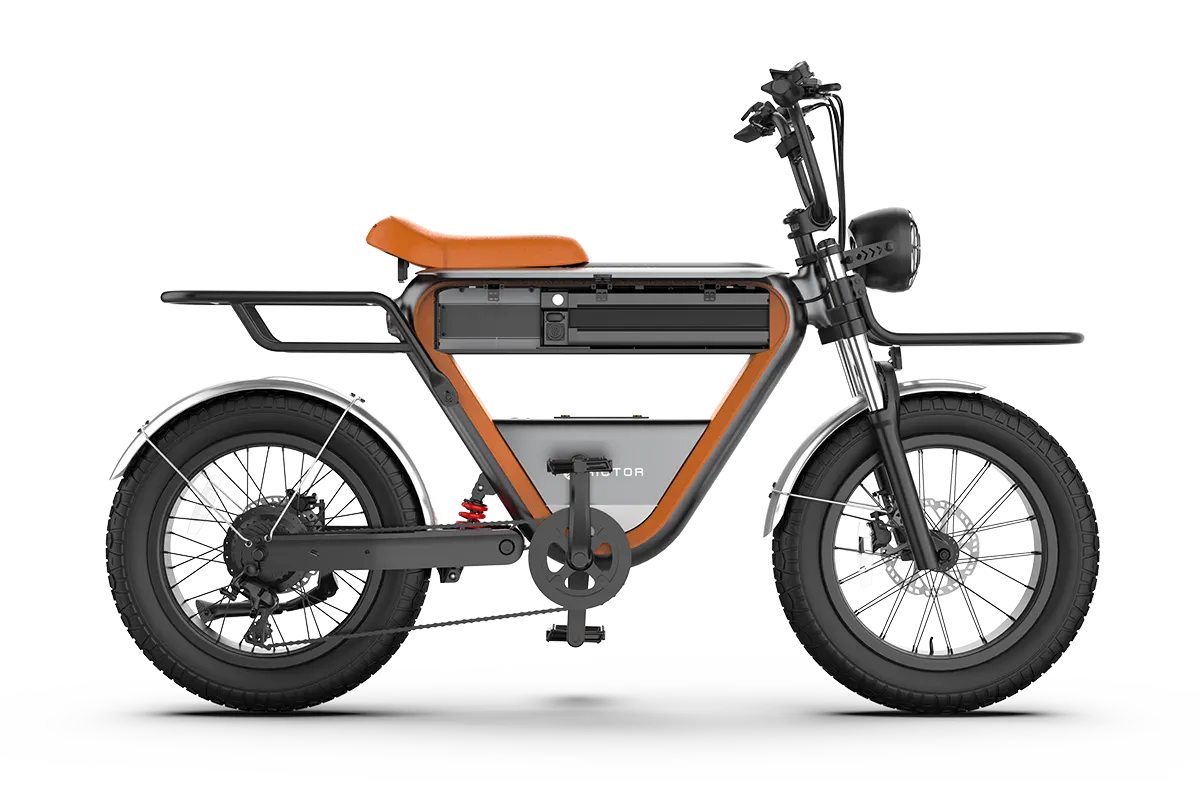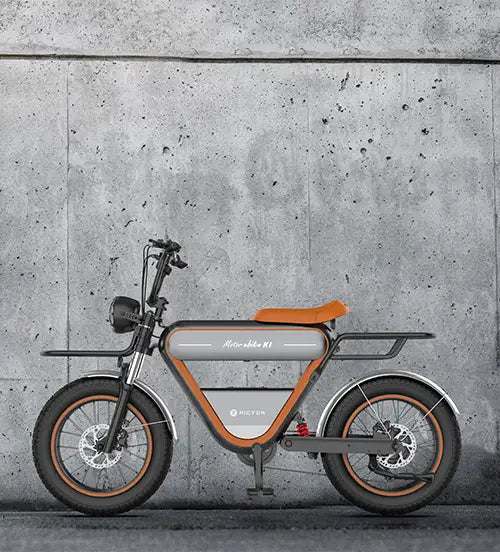
Can You Charge an Electric Bike with Solar Panels?
The type and size of the solar panel system you choose will directly impact the efficiency of the charging process. The solar panels must have enough capacity to generate the required power to charge the ebike battery. On average, a typical electric bike requires anywhere from 300 to 700 watts of power, depending on the motor and battery size.
For instance, if you are using a 750W electric bike, you will need a solar panel system that can provide a similar or higher wattage to effectively charge the bike. Smaller systems, such as those with 100W or 200W panels, may not be sufficient unless you have multiple panels working together.
Solar Panel Setup: Off Grid vs. Grid Tied Systems
There are two primary types of solar panel setups you can use for charging your electric bicycle:
Off Grid Solar System: This type of system is entirely independent of the electrical grid and relies solely on solar panels to generate power. Off grid systems often include a battery bank that stores excess power for later use. This is ideal if you are in a remote area or want a fully self-sufficient setup.
Grid Tied Solar System: A grid tied system connects to your local utility grid. It allows you to generate power using solar panels and draw from the grid when necessary. This system can be more flexible if you need to rely on grid electricity when solar conditions are not optimal.
Charging Time and Efficiency
The amount of time it takes to charge your electric bike with solar panels depends on several factors, including the solar panel wattage, the ebike battery size, and the sunlight conditions in your area. On average, it can take anywhere from 4 to 8 hours to fully charge an electric bike battery with a solar panel system.
This timeline can vary. For example, on a sunny day, a 100W solar panel might provide about 400-500Wh of power per day, which may be enough to charge a battery with a capacity of around 400Wh. If your electric bike has a larger battery, you may need a more powerful setup to fully charge the bike in a reasonable amount of time.
SEE ALSO Can you ride an electric bike if the battery runs out?
Solar Panels for Charging on the Go
If you’re a cyclist who enjoys long rides and wants the flexibility of charging your electric bike on the go, portable solar panels can be a convenient option. These are smaller, foldable systems that you can carry with you and deploy when needed. While they won’t provide as much power as a larger stationary system, they can be useful for recharging during extended trips, especially in remote locations where access to an electrical outlet may not be available.
These portable systems usually come with integrated batteries that can store the power generated by the panels, allowing you to charge your electric bike later, even when the sun isn’t shining. Keep in mind that while these portable solutions are great for emergencies or long trips, they typically require a much longer time to fully charge your electric bike.
Costs and Maintenance of Solar Charging Systems
The initial cost of setting up a solar charging system for your electric bike can be significant, particularly for larger systems. Prices for solar panels vary depending on size, brand, and output. A basic off grid system, including panels, charge controller, and battery storage, can cost anywhere from $500 to $1,500 or more. For those using portable systems, the costs may range from $200 to $800 depending on the model.
Despite the initial investment, solar charging can save you money in the long run by reducing your reliance on grid electricity. Solar systems have low maintenance costs. Once installed, the only maintenance required is keeping the panels clean and ensuring that the system is working correctly.
Key Considerations for Solar Charging Your Electric Bike
Battery Compatibility
Not all electric bike batteries are designed to work with solar charging systems, so it’s essential to check the compatibility of your bike’s battery with the solar system you plan to use. Some electric bikes may require a specific charging voltage or adapter, so make sure to confirm that the solar system you’re considering meets these specifications.
Weather Conditions
The effectiveness of solar panels is heavily influenced by weather conditions. While they work best on sunny days, solar panels can still charge your electric bike in cloudy or overcast conditions, albeit at a slower rate. In areas with frequent rain or limited sunlight, it might be more challenging to rely solely on solar charging.
Location
The location of your solar panels is crucial to their efficiency. If you are installing a fixed solar system, you should place the panels in an area that receives maximum sunlight throughout the day, such as a roof or open outdoor space. For portable systems, it’s important to position the panels in direct sunlight to get the most power.
Conclusion
Charging your electric bike with solar panels is a feasible and eco friendly option for those looking to reduce their carbon footprint and take advantage of renewable energy sources. With the right solar panel system, you can charge your electric bike efficiently, whether you’re at home, on the go, or in a remote location.This solution is also ideal for the Rictor K1 dual battery electric bike, offering extended range and sustainability for longer rides.
FAQs
Can I charge my electric bike with any solar panel?
No, you need to ensure that the solar panel system you choose is compatible with the power requirements of your electric bike’s battery. Higher wattage panels are generally needed for larger batteries.
How long does it take to charge an electric bike with solar panels?
Charging times vary depending on factors such as the solar panel wattage and battery capacity. On average, it can take 4-8 hours to fully charge an electric bike under optimal conditions.
Are portable solar panels effective for charging an electric bike?
Yes, portable solar panels can charge your electric bike, but they may take longer to fully charge the battery compared to a stationary system. They are great for charging on the go during long rides or in remote areas.




